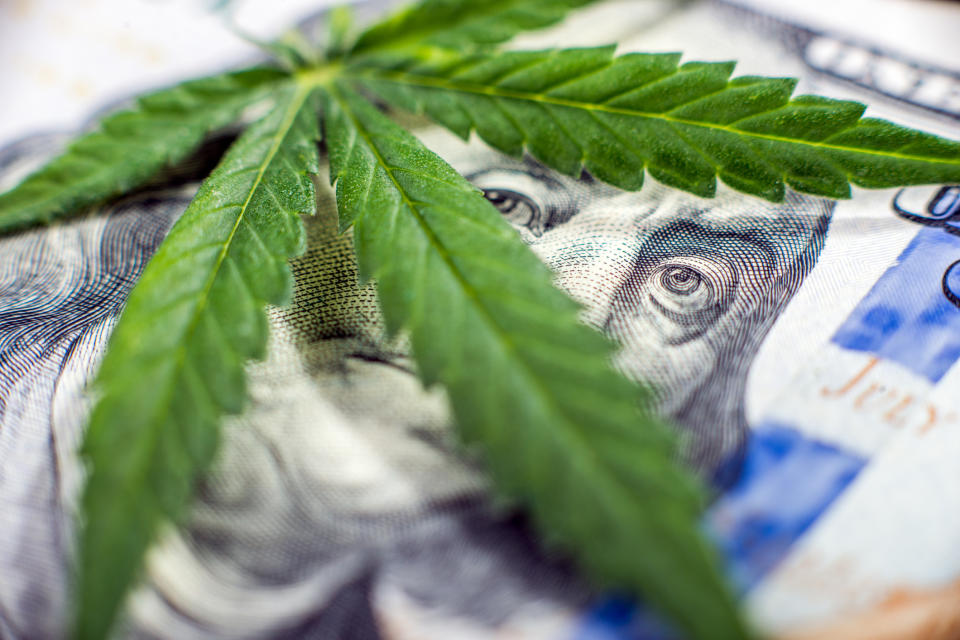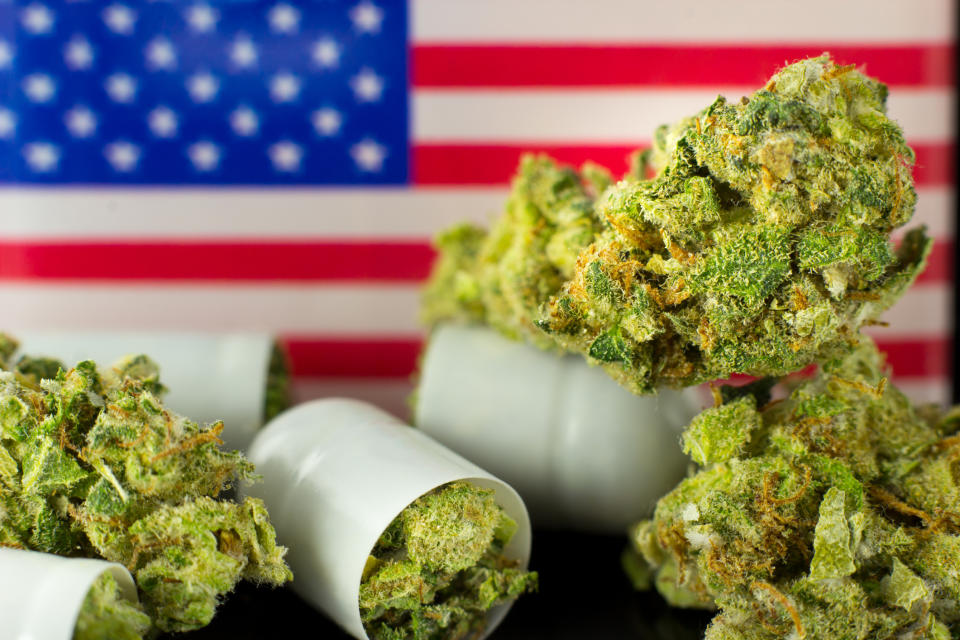The News That Sent Marijuana Stock Canopy Growth Soaring
A lot is going right for Canopy Growth (NYSE: CGC) lately. The market-share-leading Canadian cannabis company is poised for significant sales growth in 2019 following the opening of Canada's recreational marijuana market last October. And in January, Canopy Growth responded to news that hemp is being removed from the controlled-substances list with plans to leap into the U.S. market via a planned hemp innovation park in New York State.
The positive developments haven't been overlooked by investors or industry watchers. Canopy Growth's shares have skyrocketed over 80% in the first few weeks of 2019, including a nearly 10% jump on Friday following word that Piper Jaffray analysts upped their price target for the company.

Image source: Getty Images.
Digging into the details
In Canada, it's estimated that marijuana sales approached $6 billion last year. And in the U.S., industry watchers think about $50 billion is spent on marijuana every year. Worldwide, the United Nations says that the marijuana market is valued at roughly $150 billion.
With numbers like that, it's little wonder Canadian cannabis companies have captured the attention of investors. Although most of the global market continues to be conducted in the shadows, legal marijuana sales in Canada already total in the hundreds of millions of dollars per year because of its national medical marijuana market, and Deloitte estimates the opening of Canada's recreational market last fall could increase that figure into the billions of dollars this year.
In the U.S., where marijuana remains illegal at the federal level, the story is different. Rules regarding listing requirements on Canadian and major U.S. market exchanges prevent companies from doing business in countries where they break federal law, and as a result, Canadian companies have so far avoided the 33 U.S. states that have passed pro-pot laws.
Instead, the U.S. market is dominated by smaller companies that are privately owned or trade on the lightly regulated over-the-counter market. The OTC market lacks financial controls similar to the major exchanges, and sporadic trading can lead to wide swings in stock prices, so investors have had few good options available to participate in U.S. marijuana market growth.
That's changing now that the U.S. Farm Bill passed in December. By removing hemp from the controlled list, Washington has provided a pathway for Canadian companies to grow, process, and produce cannabis products derived from hemp in America, including products containing cannabidiol (CBD), a nonpsychoactive chemical found in cannabis that's associated with medicinal benefits, such as pain relief and seizure reduction.
Sizing up the opportunity
In response to the shifting legal framework in the U.S., Canopy Growth announced this month that it has obtained a license to process and produce hemp products in New York State. The company plans to invest between $100 million and $150 million in New York to help establish a hemp-focused industrial park where research, development, and manufacturing can take root.
The hemp opportunity is significant to Canopy Growth in a few ways. First, the market for CBD products in the U.S. totals in the hundreds of millions of dollars per year, and it could expand significantly from here if companies can create new consumer products, like beverages containing CBD, and distribute them widely. Market expansion opportunities have Brightfield Group, a marijuana research firm, thinking CBD sales could reach $22 billion by 2022, up from roughly $500 million in 2018, according to research conducted by Hemp Business Journal last year.
Piper Jaffray thinks tapping into that revenue makes Canopy Growth much more valuable than it was last month. On Friday, it boosted its price target to $60 per share, up from its prior $40 target, and suggested Canopy Growth's hemp strategy may be only the beginning.
If a rollback of laws restricting marijuana materializes, then sales of products derived from it could dwarf hemp-based product sales because hemp contains very little of the psychoactive chemical cannabinoid tetrahydrocannabinol (THC). Since most marijuana users consumer marijuana because of THC's effect, a change to laws allowing THC-based products would cause far more marijuana sales to shift from the black market than the change in hemp laws will do.

Image source: Getty Images.
What's next?
I suspect we'll see additional large Canadian marijuana companies announce strategies allowing them to come to the U.S., but those competitors could still struggle to keep pace with Canopy Growth.
Last year, beer, wine, and spirits maker Constellation Brands (NYSE: STZ) acquired 38% of Canopy Growth in exchange for $4 billion. The financial firepower available to Canopy because of that investment gives it a big advantage over other cannabis companies hoping to secure a leading position in America. Constellation has promised to use its experience marketing to help Canopy develop market-winning products. And with Constellation Brands' headquarters in New York, where Canopy Growth's new hemp operations will be, it shouldn't be hard to leverage all that know-how for market share.
More From The Motley Fool
Todd Campbell has no position in any of the stocks mentioned. His clients may have positions in the companies mentioned. The Motley Fool recommends Constellation Brands. The Motley Fool has a disclosure policy.
